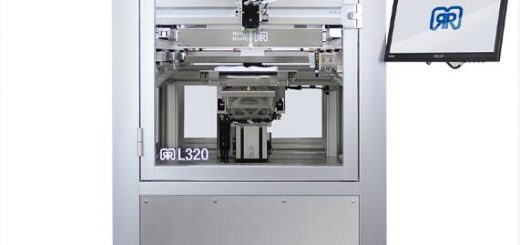Centinel Spine Receives FDA Approval for 3D Printed Spinal Implants
This year, Centinel Spine celebrates its 10th anniversary, but the company’s work has been going on for much longer than a decade. Centinel was formed from the merger-acquisition of two companies, Raymedica and Surgicraft, which were both pioneering companies in the development of surgical techniques and implants for the relief of spinal conditions. Centinel Spine is now the largest privately-held spine company, and the leader in Anterior Column Support Spine technology.
In addition to its 10-year milestone, Centinel has another reason to celebrate: it has been given 510(k) clearance from the FDA to market its FLX Platform of Integrated Interbody and non-integrated interbody fusion devices, an important medical approval increasingly being granted to 3D printed devices as the FDA continues to examine and regulate additive manufacturing in medical device creation.
The 3D printed FLX devices are made completely from titanium and feature a combination of solid and porous radiolucent sections designed to reduce mechanical stiffness and improve visibility compared to solid titanium implants. FLX devices also feature a proprietary FUSE-THRU trabecular scaffold which is designed to allow for bony in-growth and on-growth throughout the implant.
“We are excited to announce the clearance of the FLX Platform, which represents the next evolution in STALIF technology,” said Centinel Spine Chairman and CEO John Viscogliosi. “Utilizing 3D-printing, we are able to offer the proven benefits of the STALIF design in a truly novel, all-titanium lattice option. This allows our surgeons the flexibility to use multiple implant material options through a single set of instruments to address each patient’s unique pathology.”
STALIF FLX Integrated Interbody devices have an advantage over other all-titanium implants as they are indicated for use at one or two contiguous levels with both autograft and/or allogenic bone graft.
“This clearance is a significant achievement in the development of 3D-printed titanium devices, as the 510(k) included multiple interbody fusion device families, representing thousands of potential Cervical and Lumbar fusion implants,” continued Viscogliosi.
Before it became Centinel Spine, Surgicraft launched an innovative Integrated Interbody device, a new type of implant for anterior spinal surgery. The device is implanted through a single incision, a much less invasive technique than was previously used for these types of surgeries. The FLX platform is the next step in the high-tech treatment of spinal conditions, and the FDA approval of the platform will take Centinel closer to becoming the world leader in spinal treatment. Centinel Spine has some three decades’ clinical experience, counting the work of Surgicraft and Raymedica, and is continuing to use 3D printing and other advanced technology to ease pain and restore mobility for patients.
Spinal conditions are some of the most painful and debilitating afflictions that can affect the human body, but thanks to technology like 3D printing, as well as advanced materials, these conditions are becoming easier to treat, with minimal pain and recovery time. The FDA approval of Centinel Spine’s latest platform is another leap forward in making spinal conditions easily treatable, rather than lifelong, disabling issues.
Resource:3dprint.com




Recent Comments